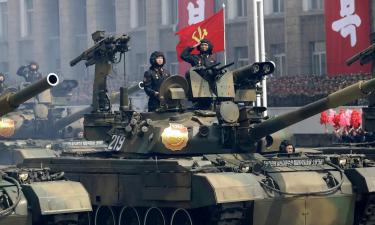Rice makes visit to oil-rich Kurdish north
Convinced oil revenue is the long-term key to economic independence for a unified Iraq, U.S. Secretary of State Condoleezza Rice appealed Friday for cooperation from the autonomous and oil rich Kurdish north.

Rice visited the region's powerful president, Massoud Barzani, less than two weeks after the regional government threatened to break away from Iraq in a dispute over oil.
After a session with their staff, followed by a lengthy one-on-one meeting at the Kurdish government offices in Irbil, Rice and Barzani stood in front of U.S. and Kurdish flags and spoke to reporters.
Barzani, speaking in Kurdish through an interpreter, said Kurdistan, "like any other nation, has the right to self-determination." However, he said he is committed to a "federal, democratic and pluralistic Iraq."
For her part, Rice thanked Barzani for the Kurds' long cooperation with the United States, adding, "and I appreciate also your important participation in the process of national reconciliation. Thank you."
When he was asked about the future distribution of oil wealth, Barzani did not repeat recent assertions that Kurdistan alone should control new contracts and business arrangements for oil pumped in the region. But at the same time, he gave no endorsement of proposed national legislation on dividing up income from oil.
Rice's two-day trip to Iraq is meant to show U.S. support for the country's fragile central government, under assault by a spiral of sectarian violence and growing calls for autonomy among Iraq's regions.
Her departure was delayed about two hours Friday by mechanical problems with the C-17 military transport that was supposed to ferry Rice to Turkey, where her Air Force Two jet was waiting to fly her to London. The delay pushed back a scheduled meeting of foreign ministers later in the day in London to discuss next steps in the Iranian nuclear dispute, reports AP.
In Iraq, fears of Kurdish secession have risen in recent weeks, especially when Barzani briefly banned the display of the Iraqi flag in government buildings.
The oil dispute reflects the larger fight over federal control in Iraq.
Subscribe to Pravda.Ru Telegram channel, Facebook, RSS!





